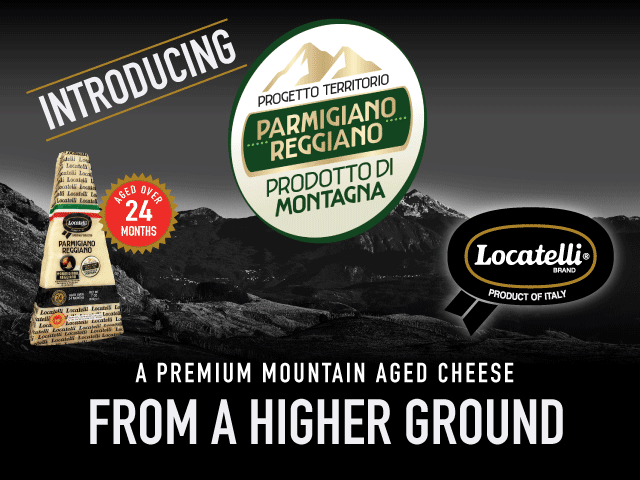The Trend in Eating Responsibly
June 1, 2021 | 8 min to read
The deli department at Whole Foods Market showcases a wide array of ethical selections, reflecting a shift towards better food choices for consumers and the planet. Major retailers like Kroger and Target are now embracing ethical eating, driven by heightened consumer demand, especially among younger shoppers. This trend emphasizes a preference for organic and humanely produced products. As awareness grows, retailers are encouraged to educate shoppers on sourcing and ethical practices, aiming for a more conscious shopping experience.

Walk into the deli department of a Whole Foods Market, and ethical selections—those products that are better for you, better for the planet and better for the workers that produce them—are everywhere. For example, find pre-sliced meats with packaging that calls out attributes such as antibiotic-free, humanely raised, nitrate- and nitrite-free, Non-GMO and organic. Ditto are the deli cheeses labeled organic, no artificial hormones and milk from pasture-raised cows. It’s no wonder that as early as 2007, this Austin, TX-headquartered retailer now with 500-plus stores in the U.S., UK and Canada, was recognized on the Ethisphere Institute’s ‘World’s Most Ethical Companies’ list in the ‘food retail’ category.
Fast forward, it is now mainstream retailers that are capitalizing on the growing demand for ethical foods. Case in point, the Cincinnati, OH-headquartered Kroger Co. one of the largest retailers in the nation, debuted its flagship natural and organic brand, Simple Truth, in 2012. Products include plant-based deli slices in Black Forest Ham and Salt & Pepper Turkey flavors. In 2020, Kroger, as well as nationally located retailer Target; the regional Northeast chains Giant Foods, Wegmans and ShopRite; and Southeast retailer Publix, were all listed among the top 10 conventional U.S. food retailers in the Good Food Institute’s 2020 Good Food Retail Report. Specifically, this ranked retailers by their selection, marketing and merchandising of plant-based foods. Ethical eating is indeed moving mainstream.
“Ethical eating is far more than a fad; if anything, the pandemic has increased interest. After a year of uncertainty, consumers are looking forward to calling the shots when it comes to what they choose to eat, and their concerns often extend beyond their own needs to everyone involved in bringing food to their tables,” says Sharon Olson, executive director of the Culinary Visions Panel, in Chicago.
WHY BITE?
A high-income shopper demographic and faster sales than conventional counterparts are two good reasons for deli operators to court the ethically eating customer and sell the products they want.
“It makes the most sense to target households that align with these (ethical) values from a psychographic perspective, but it’s also important to understand that these sorts of products carry a higher price tag than conventional items, so certain demographic characteristics, namely income, become a factor, as well,” says Kyle French, brand manager for Applegate Farms, an all-natural and organic deli meat producer headquartered in Bridgewater, NJ.
These higher prices, French says, are driven by higher costs, which stem from the higher standards and practices in place regarding how the animals are raised, how the farms are kept and how the finished food product is produced. While there is a stronger regional demand for these products on the East and West Coasts, there’s also regionality in terms of areas in proximity to cities, where incomes are often higher. Therefore, marketing to customers in urban stores nationwide can make sense.
Ethical products also tend to resonate more with younger shoppers, according to Chris DuBois, senior vice president of protein practice at Chicago-headquartered market research firm IRI.
DuBois adds that new introductions of organic products have seen an uptick in the deli. “Organic meats have been trending for the past five to 10 years and are growing in sales at twice the rate of non-organic meats. The deli department has lagged on this, but we are set to see a big flurry of introductions. Organics in the deli meat and cheese sets will become a bigger part of these categories over the next three years and grow in sales at a faster rate.”
STOCK WHAT SHOPPERS WANT
Natural was the top health and wellness label in terms of dollar sales on products sold throughout the store among conventional retailers, natural foods retailers and discount retailers, during the 52 weeks ending April 3, 2021, based on Total U.S. Food data provided by The Nielsen Co. a New York-based data analytics firm. Following this, preservative and GMO claims ranked second and third, respectively. These three terms—natural, preservative and GMO modified—represented nearly 70% of health and wellness food product sales. Rounding out the top 10 were: organic, hormone/antibiotic presence, antioxidants, cage-free, grassfed, free-range and cruelty-free. Products labeled with nine out of 10 of these terms grew double digits in dollar sales over the year prior. The exception was antioxidant claims, of which those products garnered a single-digit sales increase.
Key among deli categories with products often having multiple such labels are meats and cheeses.
“Demand for ethical, transparent, claims-based meat is higher than ever before, and this past year we saw supercharged growth in the segment, says Drew Calvert, vice president of prepared pork for Niman Ranch, in Westminster, CO, of which products come from heritage hogs raised humanely and without antibiotics or hormones. “The new Power of Meat report (by San Antonio, TX-based 210 Analytics) found that 83% of consumers were looking for ‘Better For’ products – better for the planet, personal health and animals. As a result, retailers can reach an expansive audience with a focus on quality and values-driven meat brands in the deli.”
The company’s artisanal ham is a top seller, sold as pre-sliced deli ham, ham steaks, classic holiday spiral hams and more. Newest is Niman’s slow-smoked, hand-pulled pork that is heat-and-eat ready-to-serve.
A product that feeds into consumers’ desire for healthful protein-packed snacks is Nick’s Sticks. These are 1.7-ounce single-serve protein sticks made of grassfed beef, a combo beef and pea protein, free-range turkey and free-range chicken varieties made by Wenzel’s Farm, LLC, in Marshfield, WI. All have no artificial colors, added soy or MSG.
The two major trends for cheese over the last year and because of the pandemic are health and premiumization.
“Both play into ethics,” says Kelly Slentz, associate brand manager for Organic Valley Coop, in La Farge, WI. “With health maintenance and illness prevention being top priorities over the past year, consumers are seeking better-for-you, nutrient-dense, high-quality foods. We have found that animal care is a strong indicator of quality in cheese. This is evident in the high growth of cheese labeled ‘Grassfed’, up 26% for the 52 weeks ending January 24, 2021, according to SPINs data. Premiumization is also about better quality and is about upgrading your food experience. Premium brands deliver on great taste and great performance with clean labels and cues of high quality such as organic, grassfed, non-GMO, fair trade and artisan/local.”
The company’s 100% grassfed mild cheddar and sharp cheddar are growing at double the average rate for its block portfolio. The newest product is organic American cheese slices.
Beyond label terms, brands are more important to consumers, according to Larry Levin, IRI’s executive vice president of market and shopper intelligence. “Shoppers tend to look for specific brands first and think all the attributes they want in a product will come as part of that brand.”
Trust is a significant factor in brand choices, agrees Culinary Visions’ Olson. “Consumers want companies they trust to deliver nourishing, great-tasting food with respect for those who produce it and the planet. Millennial consumers are evaluating companies not only on their products and their brands but on their corporate conscience.”
TELL ‘EM WHAT IT IS & THAT YOU HAVE IT
There is a quest for knowledge among consumers today.
“Food became comfort and salvation during the past year, and consumers have developed a keen interest in ethical eating. Seventy-nine percent of survey respondents said they want to know as much as possible about what they are eating from sourcing to preparation,” says Olson, referencing a series of studies called The Mindful Dining Initiative that she started in 2013, of which the latest study was released in December and focused on the impact of the pandemic.
“Consumer education can be difficult and often costs large sums of money to get the word out through advertising. Since many consumers do their reading and make their decisions at the shelf or point of purchase, partnering with ethical brands to make sure that their packaging is differentiated, eye-catching and tells a story is important,” says Applegate Farm’s French.
Display or devoting certain sections of the case or shelf to product brands that follow ethical principles can make it easier for the shopper to find these products in the first place, French adds, which is the first step in them understanding how these products are different.
“We offer multiple types of display options for in-store merchandising. Our product comes in display-ready caddies, and we have shippers that stand 5-feet tall and have a 12-inch footprint that displays the caddies. We also have countertop display options that display three caddies,” says Rachel DePouw, marketing coordinator for Nick’s Sticks.
Signage, informational QR codes on displays, digital storytelling and educating staff to be able to answer consumer questions are other ways delis can help bring awareness and transparency to ethically-produced food products, according to Niman Ranch’s Calvert.
“Cross promotion with other like-minded brands is a great way to bring in shoppers outside of the category into the deli,” says French.
In addition, electronic communication has become more important in today’s environment.
“Even consumers who have chosen to come back into the store to shop often refer to store apps before they arrive to make the most of their shopping trip. A user-friendly app that leads customers to items that interest them is the first step in successful merchandising,” says Culinary Vision’s Olson.
Online shopping has the added benefit of being able to target shoppers who buy similar brands and products in other categories through shopping cart suggestions, according to French. However, in-store or online, “making sure that key claims and points of difference for these types of products are displayed loud and clear to the shopper is very important.”
EYE THE HORIZON
Ethical eating is not a fad, says Organic Valley’s Slentz. “Gen Z maybe even more concerned about the sustainability and ethics behind their food than Millennials. In fact, Gen Z is avoiding animal products more than the general population for environmental, health and ethical reasons. There is continued distrust among young consumers due to greenwashing. Young, savvy consumers are looking for products/brands that benefit people, animals and the planet in a meaningful and authentic way.”Looking ahead, adds Niman Ranch’s Calvert, “My advice to deli operators is to embrace consumer demand, be open-minded and dig into meat brand and other product protocols and practices to ensure they align with consumer expectations.” DB
7 of 8 article in DeliBusiness June/July 2021


